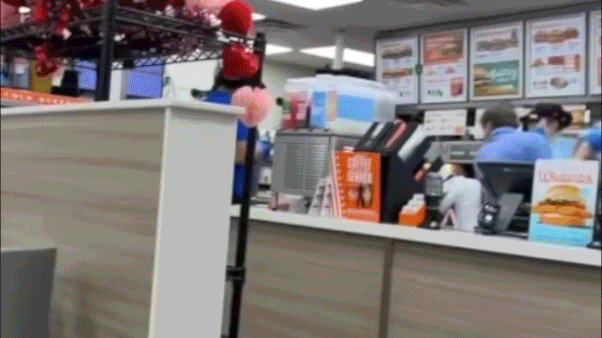NEW YORK – Facing freezing temperatures and snowy weather, several hundred protesters gathered at courthouses across the nation Friday and some clashed with police as they protested a landmark U.S. Supreme Court decision that removed most limits on corporate and labor spending in federal elections.
In Washington, D.C., 11 people who got into confrontations with police were arrested on the courthouse steps and on the plaza, while another person was arrested inside the courthouse for unlawful entry. A crowd of about 100 protesters gathered on the sidewalk outside the court's 1,300-pound bronze doors, which were shut on account of the protest, chanting: "Whose steps? Our steps."
Earlier, demonstrators wearing black robes and pretending to be Supreme Court justices sang songs mocking the Citizens United ruling on the Capitol lawn.
Occupy Wall Street activists joined forces with Move to Amend, a grassroots coalition that organized the event in more than 100 cities, though the turnout in many places was low. In some cities, fewer than a dozen protesters showed up. Protesters said they were kicking off petition drives in support of a constitutional amendment that would overturn a 2010 court ruling that allowed private groups to spend huge amounts on political campaigns with few restrictions.
In San Francisco, where a couple of hundred protesters gathered in the city's financial district, at least 11 protesters were arrested after chaining themselves to the front doors of Wells Fargo's corporate headquarters. Others linked arms to prevent people from entering a Bank of America branch.
Many protesters spilled into the streets as police in riot gear and private security guards tried chasing them off. Two cable cars came to a grinding halt as protesters took over an intersection, and traffic in some places had to be rerouted or came to a complete standstill.
In Boston, fife and drum music played as protesters rallied at the federal courthouse. Some protestors even dressed their dogs in pinstripes and red ties, saying that dogs should be able to vote if big businesses basically can.
A demonstration of about 100 people outside the federal courthouse in Minneapolis included chants and street theater. One skit included a judge who performed a marriage ceremony between a person and a corporation.
About 50 people braved blizzard-like conditions in Chicago, waving at passing cars and chanting, "Money out of politics."
In Cleveland, about 40 to 50 protesters in hats, hoods and gloves held a morning vigil outside the Metzenbaum Federal Courthouse, followed by a march through downtown streets. During the march, paper $50 "bills" were taped over the mouths of ralliers.
About two dozen protesters drew occasional honks from passing drivers as they stood outside Baltimore's federal courthouse with signs that read: "Corporations are not people, Money is not speech," and "B-heard: Corporate money out of politics."
In Albany, about 50 demonstrators carried placards and a cardboard coffin labeled "Democracy RIP." And several dozen protesters in Denver went inside the Capitol to meet lawmakers after the protest.
But in St. Louis, just four people showed up for a planned gathering outside of City Hall. They hung around for several minutes before leaving without a rally. Those who did attend blamed the frigid weather — blustery winds and temperature in the low 20s — and an apparent lack of communication.
It was a far cry from Occupy protests in the fall, when hundreds gathered around the clock at a small downtown park near Busch Stadium.
"Back in October it was easy to find out what was going on," said 51-year-old Don Higgins of St. Louis. "You just went down to Kiener Plaza and asked somebody."
The turnout was similarly small in Indianapolis, where protester Ken Chestek, a professor at Indiana University's McKinney School of Law in Indianapolis, lamented the fact that only 15 people showed up for a demonstration against Citizens United v. FEC.
"When I heard the Citizens decision announced on NPR two years ago, I started screaming, 'This is the end of the republic,'" he said. "To give corporations political power, that's the end of democracy."
Activists in New York scrambled to move their protest after a judge ruled Thursday that demonstrators don't have a First Amendment right to protest in front of a federal courthouse.
Protesters had filed a lawsuit asking the judge to overturn the government's rejection of their permit application. The permit was denied on grounds that the courthouse poses unique security concerns.
In a statement late Thursday, Move to Amend said the rally would be moved to Foley Square, near the courthouse, and that activists would focus on organizing the protests rather than appealing the ruling.
__
Associated Press Writers Mark Sherman and Jesse H. Holland in Washington, D.C., Terry Collins in San Francisco, Alex Dominguez in Baltimore, Carrie Schedler in Indianapolis, Kristen Wyatt in Denver, Jim Salter in St. Louis and Michael Virtanen in Albany, N.Y., contributed to this report.









































